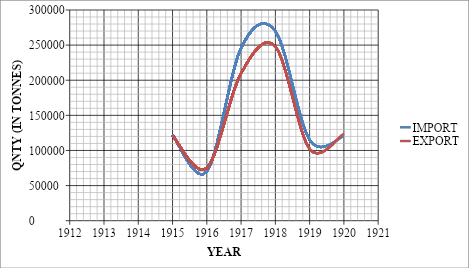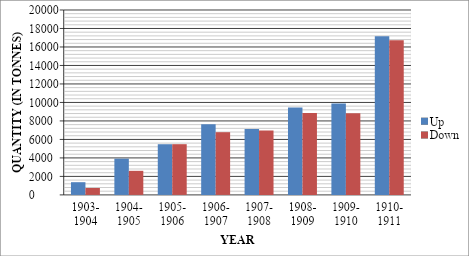Abstract
The First World War (1914–1918) had far-reaching consequences on global and regional
commercial networks. Lake Victoria, a transport and economic hub in East Africa became an
area of interest between the Germs in Tanganyika and the British in East Africa (British East
African protectorate and Uganda) where each power sought to disrupt the general supply and the
commercial progresses of one another during the First World War. This study investigates the
survival of trade across the lake amidst the hostilities and fear in the region caused by the War.
Employing Economic Resilience, Informal Economy and Regional Integration Theories, this
study illustrates the persistence of trade across the lake during the war period. The study holds
that strategic interests of colonial powers and pre-existing trade relations sustained commerce
across the lake during the war period. Local traders adjusted to wartime conditions by employing
informal techniques including smuggling and barter systems. In the same vein British and
German colonial officials reluctantly compromised some level of trade for sustainability of their
respective economic interests.
Research ID
Citation Generator
Cite This Research Manuscript
Figures


References (APA)
- Anyumba, G. (1995). Kisumu town: History of the built form, planning and environment: 1890–1990. Delft University Press.
- Bertho, F. (2010). Maritime transport in Australia: The impacts and benefits of structural. [Publisher information missing].
- Boeke, J. H. (1910). Tropische-koloniale staathuishoudkunde: Het probleem. [Publisher information missing].
- De Lombaerde, P., & Van Langenhove, L. (2006). Indicators of regional integration: Conceptual and methodological aspects. In P. De Lombaerde & L. Van Langenhove (Eds.), Assessment and measurement of regional integration (pp. 27–59). Routledge.
- Ford, V. C. R. (1955). The trade of Lake Victoria: A geographical study. East African Literature Bureau; East African Institute of Social Research.
- Garmezy, N., & Masten, A. S. (1986). Stress, competence, and resilience: Common frontiers for therapist and psychopathologist. Behavior Therapy, 17(5), 500–521.
- German East Africa. (1916–1917). [Colonial records]. [Archive and collection information missing].
- Godfrey, P. C. (2011). Toward a theory of the informal economy. Academy of Management Annals, 5(1), 231–277.
- Gregory, A. (2008). The last great war: British society and the First World War. Cambridge University Press.
- Hart, K. (1985). The informal economy. Cambridge Anthropology, 54–58.
- Hart, K. (2010). Africa’s urban revolution and the informal economy. In The political economy of Africa (pp. 389–406). Routledge. [Editor information missing].
- Holmes, C. F. (1971). Zanzibari influence at the southern end of Lake Victoria: The lake route. African Historical Studies, 4(3), 477–503.
- Kimbugwe, K., Perdikis, N., Yeung, M. T., & Kerr, W. A. (2012). Regional integration theory. In Economic development through regional trade: A role for the new East African Community? (pp. 76–98). [Publisher and editor information missing].
- Kisumu Province. (1908). Annual Report, 1907/08. [Archive and publisher information missing].
- Klovland, J. T. (2017). Navigating through torpedo attacks and enemy raiders: Merchant shipping and freight rates during World War I (NHH Dept. of Economics Discussion Paper No. 07). NHH Norwegian School of Economics.
- MacKenzie, J. (1985). The naval campaigns on Lakes Victoria and Nyasa, 1914–18. The Mariner's Mirror, 71(2), 169–182.
- Maddox, G. H. (1998). Networks and frontiers in colonial Tanzania. Environmental History, 3(4), 436–459.
- Martin, R., & Sunley, P. (2017). Competitiveness and regional economic resilience. In Handbook of regions and competitiveness (pp. 287–307). Edward Elgar Publishing. [Editor information missing].
- Nakyonyi, A. (2011). Maritime safety on Lake Victoria: Analysis of the legal and regulatory framework [Master's thesis, Lund University].
- O'Brien, P. P. (2015). How the war was won: Air-sea power and Allied victory in World War II. Cambridge University Press.
- Ogot, B. A. (Ed.). (1976). Hadith 5: Economic and social history of East Africa. Kenya Literature Bureau.
- Ojala, J., & Tenold, S. (2016). Maritime trade and merchant shipping: The shipping/trade-ratio from the 1870s until today (NHH Dept. of Economics Discussion Paper No. 12). NHH Norwegian School of Economics.
- Olali Odula, F. (2024). Unlocking the maritime potential of Lake Victoria by the riparian states. [Source and publisher information missing].
- Onduru, T. A. (1992). Some aspects of economic change in Kano, Kenya, 1850–1963 [Unpublished MA thesis]. University of Nairobi.
- Opondo, P. A. (2011). Fishers and fish traders of Lake Victoria: Colonial of fish and the development of fish production in Kenya, 1880–1978 [Doctoral dissertation, West Virginia University].
- Osogo, J. (1973). The peoples of East Africa. Heinemann.
- Overton, J. (1989). War and economic underdevelopment? State exploitation and African responses in Kenya, 1914–1918. The International Journal of African Historical Studies, 22(2), 227–261.
- Palmer, S. (1999). Current port trends in an historical perspective. Journal for Maritime Research, 1(1), 99–111.
- Rashid, N. (2014). British colonialism in East-Africa during nineteenth century. IOSR Journal of Humanities and Social Science, 19(3), 8–11.
- Schimmelfennig, F. (2018). Regional integration theory. In Oxford research encyclopedia of politics. Oxford University Press.
- Sunseri, T. (2003). Reinterpreting a colonial rebellion: Forestry and social control in German East Africa, 1874–1915. Environmental History, 8(3), 430–451.
- Tignor, R. L. (2006). W. Arthur Lewis and the birth of development economics. Princeton University Press. https://doi.org/10.1515/9780691204246
- Uganda Protectorate. (1914–1920). [Archival records]. [Archive and collection information missing].
- Uganda Railway. (1914). Annual reports of the general manager on administration of the Uganda Railway, 1913-1914. Uganda Railways Press.
- Uganda Railways. (1920). Annual report of the general manager on administration of the Uganda Railways, 1914/1915-1919/1920. Uganda Railways Press.
- Uganda Railways. (1921). Annual report of the acting general manager on administration of the Uganda Railways, 1920-1921. Uganda Railways Press.
- Yusuff, O. S. (2011). A theoretical analysis of the concept of informal economy and informality in developing countries. European Journal of Social Sciences, 20(4), 624–636.


